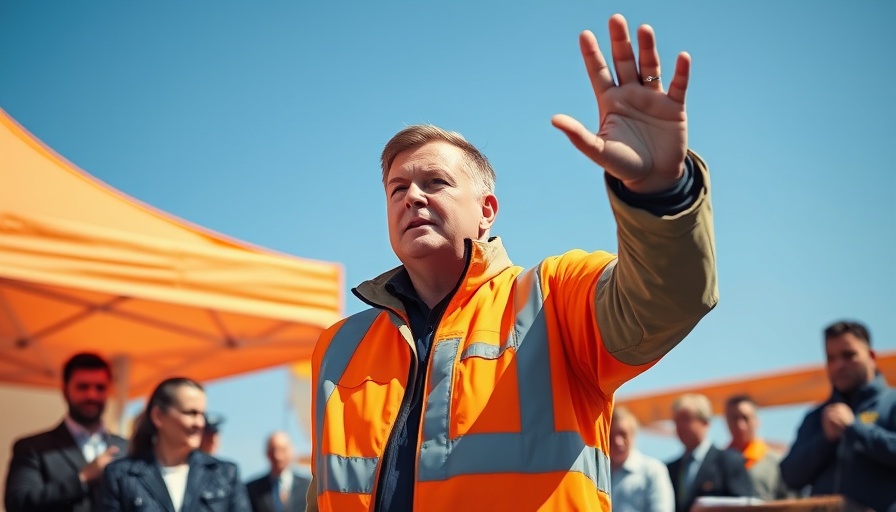
Suspension Amidst Controversy: What Happened to Kenny Kunene?
Kenny Kunene, the MMC for Transport in Johannesburg, is making headlines after his recent suspension by Patriotic Alliance leader Gayton McKenzie. This action follows Kunene's presence at the home of suspect Katiso Molefe during a police raid as they investigate the murder of DJ Sumbody. Kunene was reportedly waiting to facilitate a meeting with Molefe and a journalist at the time of the raid. However, his proximity to a figure implicated in a serious crime raises questions about political integrity and accountability within the city’s leadership.
Implications for Political Accountability
Kunene’s suspension poses deeper implications for political accountability in South Africa. With the 2024 general elections on the horizon, the incident could sway public perception of the ruling coalition government and its opposition, particularly the ANC and DA. Accountability is crucial in a nation still grappling with the aftershocks of state capture and corruption. Such controversies can potentially affect voter turnout, especially among younger constituents concerned about anti-corruption measures and electoral integrity.
Understanding the Underlying Tensions
This incident also unveils the tension between the ongoing political realignment in South Africa and the challenges facing the Government of National Unity (GNU). The existence of solidarity between opposition parties such as the Economic Freedom Fighters (EFF) and established parties like the ANC and DA is increasingly scrutinized against the backdrop of crime and governance failures. If leaders like Kunene are not held accountable, it may exacerbate public distrust in political establishments and undermine efforts for effective service delivery.
Future of Transport Policies: A Crucial Concern
The future of transport policies in Johannesburg could also hang in the balance following Kunene’s suspension. His leadership has been pivotal in advocating for improved transportation systems amidst a growing call for public sector reform. Will his absence lead to stagnation in vital infrastructure development, or will it open doors for more responsible leadership? How this unfolds may influence the city’s transport agenda and align with broader discussions around urban planning and economic policy.
Public Sentiment: The Intersection of Crime and Governance
The juxtaposition of Kunene's recent actions against serious criminal investigations may stir a wave of sentiments among residents. Many South Africans have become increasingly desensitized to violence and crime, especially given the alarming rates of gender-based violence and unemployment in the country. Political leaders must recognize that their credibility is on the line. Kunene’s case serves as a crucial reminder of the ties between governance, public trust, and perceptions of safety in communities.
Response from the Political Landscape
As responses unfold, one must consider the reactions from various political factions regarding Kunene's suspension. Given the intertwined relationships among parties within the coalition and the opposition, their approach to this controversy may profoundly influence public discourse, electoral strategies, and grassroots movements aimed at advocating for justice and integrity.
Conclusion: A Call for Responsible Leadership
The suspension of Kenny Kunene brings to light the pressing need for political accountability amid significant societal challenges. It presents an opportunity for South Africa to reflect on its governance frameworks and strive for a future where transparency and integrity are prioritized. As citizens, we must demand better from our leaders, ensuring that they uphold the values of justice as the nation moves towards the 2024 elections. Engage in civil dialogue, participate actively in your communities, and advocate for reforms that prioritize the well-being of all South Africans.
 Add Row
Add Row  Add
Add 




Write A Comment